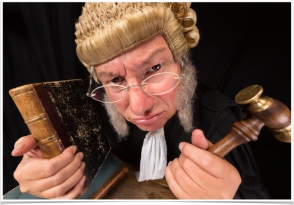The Problem With Summary Judgments
 Summary Judgment
Summary Judgment
If you take depositions then you can recite the standard in your sleep, which is for the court to review the evidence in a light most favorable to the nonmoving party. Along with “reasonable doubt,” the summary judgment standard is one of the most well-known in the legal profession.
But there’s a problem…Judges are human
The judges who decide summary judgment motions are human and sometimes they don’t adhere to the standard. Judges make mistakes…they have large caseloads…and they are paid to make decisions. Try as they might, most judges will, at some level, weigh evidence, disregard testimony, and generally make decisions during summary judgment.
And even if the judge doesn’t make an actual finding of fact or a decision that grants summary judgment, their perception of what happens during the summary judgment phase of the litigation and their analysis of the evidence will definitely impact how they decide the rest of the case.
If you have a transcript that isn’t clean or is confusing, you’re going to have a much more difficult time during summary judgment. The transcript is an important tool in summary judgment, and if done wrong, you’re just giving the judge more reasons to rule against you.
Every once in a while, the judge will explicitly state that she weighed evidence. And other judges will approve of this. For example, reference the explanation from this decision:
What the Magistrate, in fact, did was to assess the evidentiary quality of the subject affidavit as part of the record before her and to explain why she did not find its contents to be persuasive to her in deciding the issue before her. That is a task that is clearly appropriate to the fact finder’s weighing of the evidence to determine if it yields a genuine issue of material fact. (emphasis added)
M. Diane KOKEN, as Liquidator on Behalf of RELIANCE INS. CO. (In Liquidation), Plaintiff, v. AUBURN MANUFACTURING, INC., et al., Defendants. 341 F.Supp.2d 20 (2004)
In a lot of cases, the judges deciding summary judgment (and other motions) are evaluating the strength of the testimony that your case is relying upon. And it will often be a subconscious or unintentional decision to credit some evidence above others. In this case, the court actually admits explicitly that its weighing evidence during summary judgment.
This happens A LOT, whether the judges will admit it or not.
So you need to have the best deposition testimony possible to help yourself in arguing these motions. And then you have Daubert or pretrial motions where the judge is supposed to evaluate evidence and make decisions. In all of these situations your judge will be looking at the facts and the testimony (the deposition transcripts).

Leave a Reply